Tips to Choose Bedroom Flooring
July 23, 2021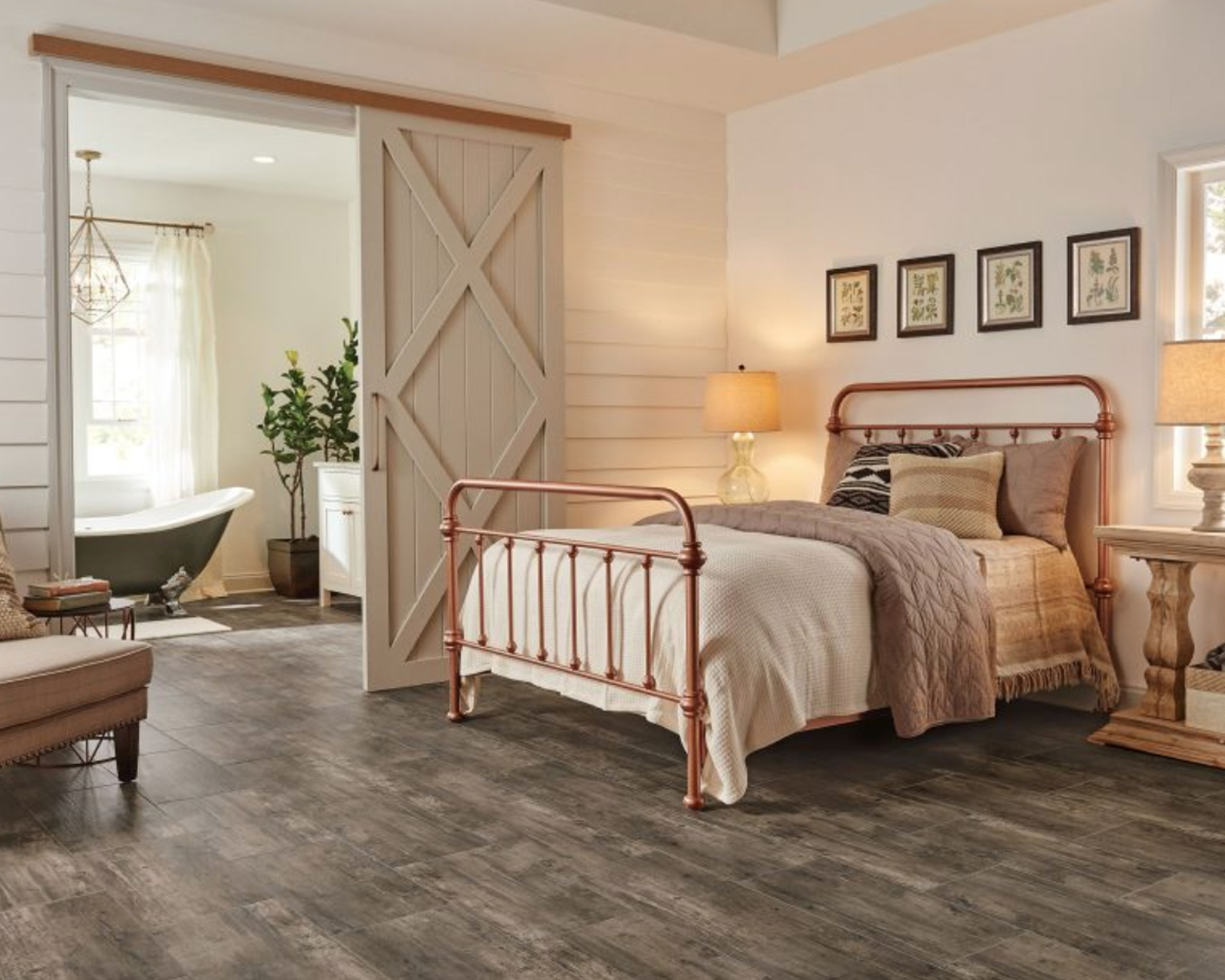
Want to change your bedroom flooring? Here are some tips to help you choose.
Remodeling and moving have been popular pastimes during the pandemic for those who had the means to upgrade their living space, bedroom flooring Nearly 16 million Americans moved between February and July, according to analysis, and homeowners spent nearly $420 billion on home improvements in 2020, according to the Joint Center for Housing Studies at Harvard University.
If your plans for a remodel or for a new home include replacing the bedroom floors, you may want to consider the advice of experts to help you choose the right material to install.
“Deciding on the best flooring option for your bedroom often is a matter of preference,” Marnie Oursler, specialist, wrote in an email. “Do you like to step onto carpet when getting out of bed in the morning or is durability your number one concern? Hardwood, luxury vinyl flooring and carpet are all good options for bedrooms.”
Most high-end homes have hardwood in the bedrooms, perhaps with rugs to add some coziness, wrote an architect, in an email.
“Some homeowners prefer the warm and plushy feel of carpet at their feet and its great sound-deadening quality,” Mullin wrote. “Laminate floors can give you the same look as hardwood with more stability and often end up less expensive than other options. Luxury vinyl tile is a great option for basement bedrooms that could be subject to water intrusion and they still look great after getting wet.”
We asked several architects and designers to share the pros and cons of bedroom floor options that you may be considering:
Hardwood
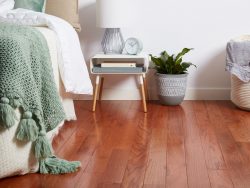
“If you are trying to decide what kind of flooring would be best for your bedroom, I always recommend going with hardwood flooring,” wrote Tracy Morris, the expert. “Hardwood is classic and will look good for many years to come.
Then I add a large area rug to add warmth and softness to the space. It may sound counterintuitive to put hardwood in and cover it with an area rug, but this gives you so much more freedom to make the rug a real statement piece and you can easily switch it out in a few years if you want to get the room a refresh.”
Pros:
- Timeless.
- Good for resale value.
- Long life span — can be sanded and re-stained for new life.
- Durable.
- Softer underfoot than tile.
- Nonallergenic.
- Can be recycled.
Cons:
- Expensive to buy and install.
- Scratches easily.
- Won’t tolerate moisture or water.
- Repairing scratches and warping can be costly.
- Less pet-friendly than some materials.
- Lacks sound insulation.
- Harder underfoot than carpet.
Even if you decide on hardwood, you will need to choose between solid or engineered hardwood flooring. “With real solid hardwood flooring, each board is made from one solid piece of wood, ensuring a tight, dense grain pattern for strength,” Oursler wrote. “With engineered hardwood, each flooring board is made up of multiple component layers to achieve the desired thickness and wear.”
Luxury vinyl tiles and planks
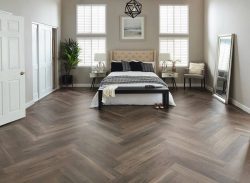 “Luxury vinyl tile and luxury vinyl planks are water resistant, and some are even considered waterproof depending on their installation,” wrote Kirsten Gable, a designer with Anthony Wilder Design/Build, “which makes this material a great option for basement bedrooms.”
“Luxury vinyl tile and luxury vinyl planks are water resistant, and some are even considered waterproof depending on their installation,” wrote Kirsten Gable, a designer with Anthony Wilder Design/Build, “which makes this material a great option for basement bedrooms.”
Pros:
- Durable.
- Scratch resistant.
- Easy maintenance by occasional dust mopping or sweeping.
- Somewhat soft underfoot.
- Easy to install, which makes them a great option for DIYers.
- Inexpensive, around the same price point as carpet.
- 10-20-year life span depending on quality.
Cons:
- Not considered a green material, not recyclable.
- May off-gas chemicals during and after installation, especially if glued in place.
- May be considered cheap at resale.
Carpet
Pros: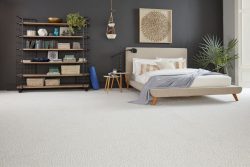
- Quiet.
- Warm and comfortable, with insulation against heat loss.
- Plenty of options for the color, pile and padding.
- Can be less expensive than other options.
- Better for pets because it is less likely to be scratched.
Cons:
- Hard to keep clean.
- Easily traps allergens.
- Can get worn down — shorter life span than other options.
- Can look dated.
Laminate flooring
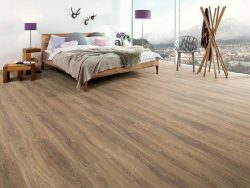 Pros:
Pros:
- Can be less expensive than carpet or hardwood.
- Plenty of options — including reproductions of more exotic wood species.
- Easier to install than some other materials.
- More stable because of how it is made.
- Some options have foam backing built in, which could help with sound.
Cons:
- Can wear easily.
- Hard to replace — may not be able to find a match.
- Can be harder or colder on your feet.
“If you are moving into a new home and debating redoing the floors, I always recommend clients to do them prior to moving in,” Morris wrote. “Redoing floors after you’ve moved in with a house full of furniture is much more difficult.”
